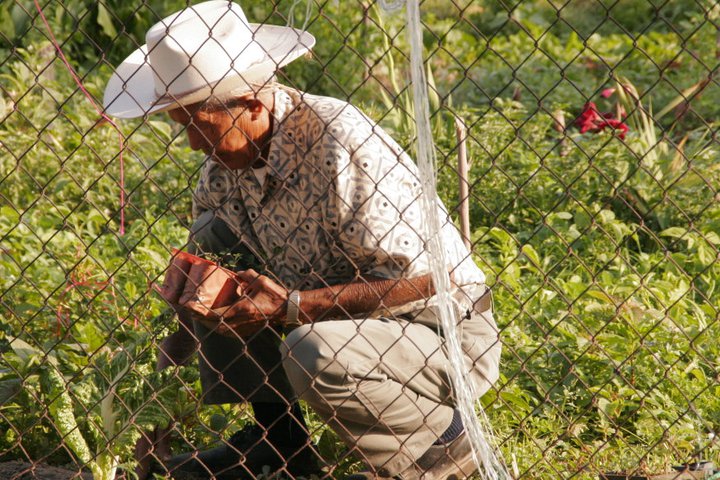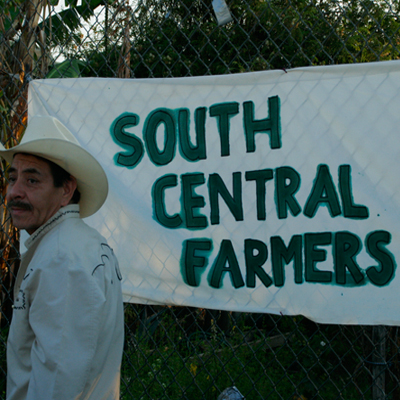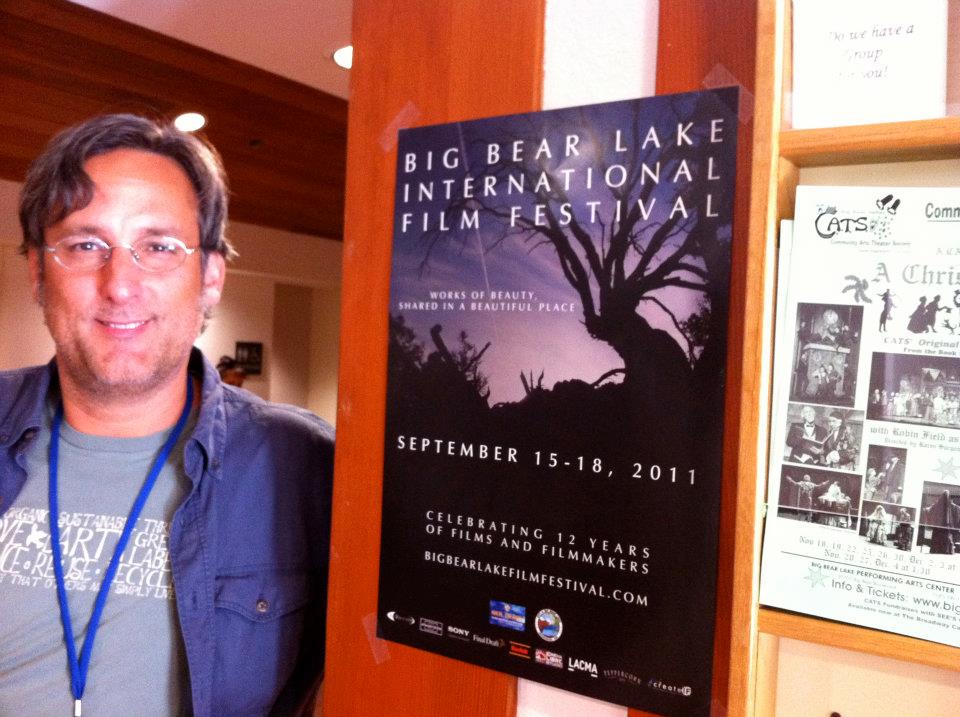Watch Save The Farm
Take a second to watch Kuehnert tell the story of the South central Farmers! Via Michael Kuehnert

Check out the delectable fresh fruits and vegatables that were produced and distributed by the South Central Farmers. Via Michael Kuehnert

They may have been evicted them from their farm, but they will not be purged from their tents! South Central Farmers and fighting to keep the Occupy LA movement alive. Via Michael Kuehnert
Inside The Mind Of The Director
I talked with Michael Kuehnert, the director of the award-winning documentary Save the Farm, which chronicles the stories of various South Central Farmers. He told me how he was inspired, what he learned from the activists, and where he thinks the movement will go from here.
What inspired you to make Save The Farm?
I had been looking for a service project, something that "gave back" to people, specifically in the area of environmentalism. I saw a picture my friend John Quigley sitting in a tree with Julia Butterfly Hill in the Santa Monica Mirror. I had never heard of the farm or urban farming, so I went down there with my Sony PD-150 and Sennheiser shotgun mic and started filming. After the first day I was hooked. I kept going back about every other day for a month, until the evictions. I made short films and sent them to Current TV, who broadcasted them. After the farm was bulldozed I let the project go for a while, but eventually made the 30 min. short and started entering in film festivals. Then I got a distributor who helped me get it on Netflix, Itunes and Hulu.
What was the most interesting thing you learned from the experience?
That urban farming is the solution to so many of today’s issues: local food, organic food, obesity and diabetes, global warming, urban green space, health care (in the form of medicinal herbs), fostering local community, environmental justice, etc. In terms of health and financial well-being, how important it is to have a self-sustainable garden in this community? It means so much to these people. Without it they don't have access to healthy organic veggies. They cut 1/3 to 2/3's off their food bill by using a space like this. They have to eat fast food, which causes obesity and diabetes, and then they have higher health care bills.
What do you think will be the future of this movement? Will the farmers give up, keep protesting, or find a new parcel of land to call their own?
The story is not over, the community has vowed to fight the development being planned by the consortium of garment industry manufacturers who are buying the property. They will protest on the site, they will fight in court. Someone donated 85 acres in the Central Valley to the farmers, and that's a working farm, they grow organic veggies that they sell at farmer's markets all over LA, but it's not the same as having the farm in the local community. The city also gave them a plot at 110th street, but it's under power lines, which are known to cause cancer.
How is having a community farm beneficial to the future generation living in the south central area?
One of the most important aspects of the farm is that the parents and grandparents were able to teach the kids how to farm. Growing food is a lost art for most of the western world, we have become totally dependent on the system. So it's imperative that kids be given the chance to learn these skills so they can be come self-sustainable and pass the knowledge along to their kids. It only takes one generation's lack of knowledge for the knowledge to be lost for everyone.

